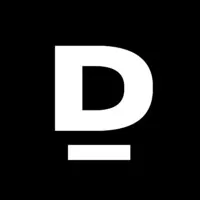
Team
Jan 4, 2024

In the dynamic world of startups, a new type of entrepreneur is emerging: the full-stack founder. These individuals possess a unique combination of technical skills, business intelligence and soft skills that enable them to create, design, build, and sell a product, all on their own. Their versatility and adaptability make them highly valuable in the startup ecosystem, as they can navigate the complexities of product development, marketing, and sales with ease. In this blog post, you’ll discover the full breadth of a full-stack founder’s capabilities and the advantages they bring to the table.
A full-stack founder is a developer with proficiency in various aspects of development, much like a full stack developer. These aspects include:
They understand the primary elements of full-stack development and are ultimately accountable for the success of their product.
Aside from technical skills, full-stack founders also need to have robust soft skills to excel in their roles. Effective communication, strong leadership, and sound problem-solving capabilities are crucial for full-stack founders, enabling them to collaborate with their executive team and drive the success of their organization.
By honing their communication skills, full-stack founders can effectively convey their vision and establish relationships with customers and partners, ultimately benefiting the entire organization. Strong problem-solving skills allow them to adapt, innovate, and maintain efficiency in the ever-changing landscape of information technology.
Full-stack founders can benefit from both practical, hands-on learning and formal education to develop their skills. Hands-on learning provides them with the opportunity to gain experience in areas such as coding, design, and product management, allowing them to develop a comprehensive skillset that can be applied to one company or multiple projects.
On the other hand, a four-year degree program provides a comprehensive education, portfolio building, internships, and valuable connections. Before enrolling in self-guided courses for full-stack development, it is advisable to carefully evaluate platforms and select courses published through reliable platforms that cover relevant technologies.
Full-stack founders employ a product-centric approach, prioritizing the development and enhancement of the product itself. They design their products with a keen focus on fulfilling customer needs and preferences by analyzing market trends, customer behavior, and competitors. This strategy helps them create products that excel in quality and functionality, meet the target audience’s requirements, and optimize its market value.
Rapid prototyping and collecting user feedback are important steps for full-stack founders to fine-tune their product and ensure its success. Utilizing tools like:
They can create prototypes to test their ideas and gather valuable insights into their product’s performance and user experience.
To effectively gather user feedback, full-stack founders can send out surveys or carry out user interviews.
This enables them to better understand user needs and desires, leading to improved usability, higher conversion rates, and a competitive edge in the market.
Emphasizing user experience in product development offers numerous advantages, such as:
Full-stack founders recognize the significance of user experience in product development and strive to enhance it continually.
This focus on user experience ultimately contributes to the product’s success and the company’s growth.
A significant part of being a full-stack founder involves generating revenue. This involves leveraging their marketing and sales abilities to validate and successfully market their product. Successful founders need essential marketing skills like:
To enhance their marketing and sales capabilities, full-stack founders need to:
Digital marketing knowledge can provide full-stack founders with numerous benefits, including:
Full-stack founders must be able to validate their product by engaging in activities such as:
Once the product has been validated, full-stack founders need to find a market fit and sell it to customers. This involves understanding the market challenges, employing full-stack experimentation, concentrating on creating full-stack solutions, and targeting a niche to serve.
Full-stack founders are persistent and resilient, unafraid of rejection or cold outreach in their pursuit of success. They can manage rejection by:
Cold outreach has played a critical role in the success of many startups, providing a cost-effective way of generating new business and securing funding. Crafting well-researched and personalized messages is the key to the success of cold outreach, helping startups reach important milestones.
Full-stack founders bring a host of benefits to their companies, including cost-effectiveness, versatility, and adaptability. Their extensive knowledge of front-end and back-end development allows them to quickly develop and implement solutions, saving time and resources in the process.
Full-stack founders are cost-efficient due to their ability to manage multiple tasks and responsibilities, thereby reducing the need for additional personnel. Their comprehensive knowledge of both front-end and back-end development enables them to swiftly develop and deploy solutions, ensuring the product meets the requirements of the target audience and optimizes its market value.
They possess the ability to adjust their strategies as the situation requires, in order to ensure success. Their capacity to work on multiple facets of a project makes them more adaptable and responsive to changes in the business landscape.
Finding a co-founder with complementary skills can be advantageous in aiding success. By partnering with someone who shares their vision and values, full-stack founders can lighten their workload and leverage the strengths of both parties to drive the company’s success.
When choosing a co-founder, it’s important to weigh qualities like:
Full-stack founders possess a unique skillset that enables them to excel in the startup world. Their technical expertise, soft skills, and relentless pursuit of success make them a valuable asset. By focusing on a product-centric approach, prioritizing user experience, and honing their marketing and sales skills, full-stack founders can create successful businesses that stand out in a competitive market.
They have the potential to revolutionize the startup ecosystem. By finding a co-founder with complementary skills and forging a strong partnership, they can drive their companies to new heights and achieve the success they envision.